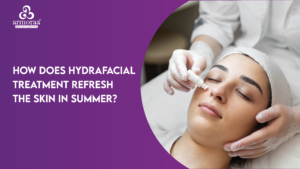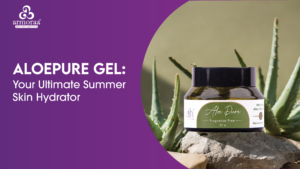Acne : All about causes and treatments
Taking care of our skin is an important component of being healthy, and people have practised it for centuries. However, most of the time, we don’t know what our skin really wants, and we end up using the wrong skincare regimen and products. We become perplexed by many skin diseases and never find the right treatment.
There’s no worse feeling than getting ready for the perfect day, but your uninvited guest (acne) pays you a visit. Now you worry about how to cover up the spot, before it steals your outfit’s thunder. So before this guest becomes the party’s centre of attention, you should know what it is, the cause of it and how to treat it.
What is Acne?
Acne is the 8th global disease, most prevalent from adolescents to adulthood. The most common disease that can be triggered by a number of causes such as diet, lifestyle, no proper skincare routine, stress, etc.
Acne is a disorder in which dead skin cells, germs, and oil clog your hair follicles. It might appear as blackheads, whiteheads, or, worst of all, pimples. The face, shoulders, chest, and back are the most typical sites for breakouts. Acne is more common in people going through adolescence, but it does show up in adults on different special occasions. It’s the most frequent skin problem that people have. Acne affects 80 percent of persons between the ages of 11 and 30, and the majority of people will have it at some time in their life.
What causes acne?
There are a variety of reasons why you can get a breakout on your face. Acne can be caused by an excessive production of oil, a drug response, the use of certain cosmetics, or it might be inherited. In most cases, acne is primarily a hormonal disorder triggered by androgen hormones, which peak in activity between adolescence and early adulthood. Acne is caused by sensitivity to these hormones, which can be exacerbated by surface germs on the skin and fatty acids in the oil glands.
Treatment
When it comes to treating acne, a multimodal strategy is required. It is critical to determine the fundamental cause, identify the trigger, treat the cause, and eliminate the trigger. Failure to do so will most likely result in recurrence. So to avoid that it is advised to find the cause and trigger, which in most cases takes a long time.
Why can’t acne be treated with a single cream?
It’s a step-by-step technique that varies depending on the stage of acne; for some, simply topical therapy will suffice; for others, oral and topical drugs are necessary; and for still others, oral and topical medications, as well as procedures, are required. This is dependent on the stage of acne and the difficulties that come with it.
Why do we need a proper regimen for acne?
When it comes to acne treatment, everything you use, starting with your face wash, moisturiser, and any other skincare product matters. Due to the topical and oral drugs, some irritation and dryness are to be expected when on any acne treatment. To maintain your skin and avoid excessive dryness and barrier disruption, a thorough routine with a suitable cleanser, moisturiser, and sunscreen is essential. These products may vary according to different skin textures. Which is why, it is ideally recommended that you first know your skin texture to be it oily, dry, combination, normal type of skin.
Is sunscreen required for acne?
Yes, it is a very important step. One, to prevent post-acne pigmentation which can be very very stubborn to treat. Second, to protect your skin from the medicated creams.
Why doesn’t the same cream that worked for my friend/ family not work for me?
It doesn’t work for you, cause your skin is different and needs something that works for it. That is why that product working for you should be ruled out!
Also, if your acne is resistant to one type of treatment, you should switch because it’s possible to become resistant to clindamycin, a popular antibiotic gel. The same cream that worked for you a few months ago may no longer work now! To keep your acne under control, you’ll need a customised routine. Which varies according to age, season, and lifestyle. How can you expect a therapy that works for someone else to work for you when the same treatment or regimen doesn’t work for you over an extended period of time? Your skin is distinct from that of others.
Why should I have a follow-up with my dermatologist forever?
Because acne flares up from time to time, and the only way to keep it under control is to adopt a healthy lifestyle and skincare regimen. A skincare regimen that adapts to your changing skin demands as you age and experience diverse situations. Acne is not like a viral fever that can be treated with drugs and cleared up in a few days. It’s like diabetes: keep it under control until you’ve got it under control. So the best way to maintain your skin in excellent shape and keep acne under control is to see your dermatologist on a regular basis.
Acne is one of the nastiest forms of disease that when occurs causes stress, anxiety, and irritation. To prevent this from getting worse, we should take care of our skin and know the products that we are using and their effects on our skin. And remember, every time you get acne, avoid touching it and bursting that pimple. It only can make matters worse by leaving you with scars.




